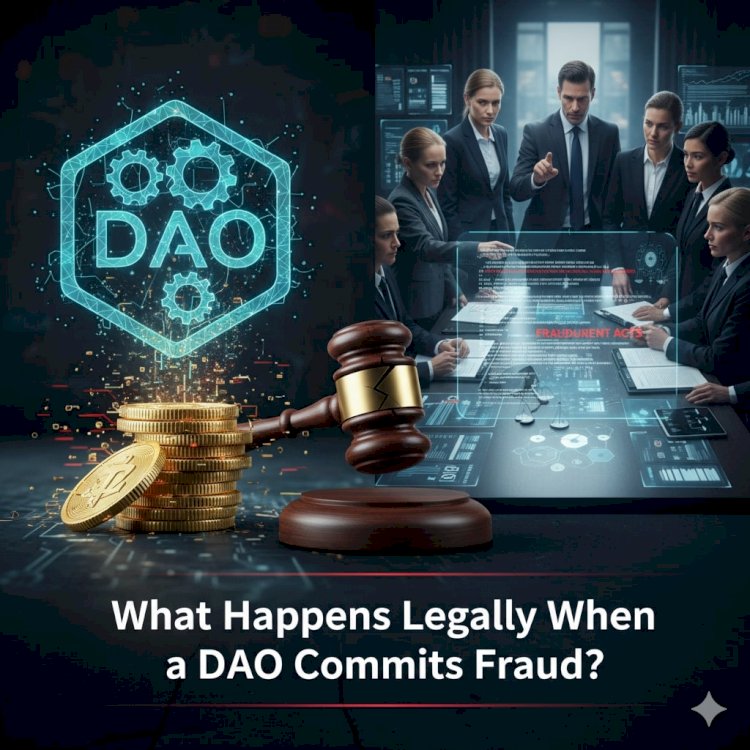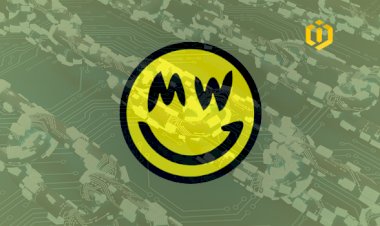What Happens Legally When a DAO Commits Fraud?

By Dr. Pooyan Ghamari, Swiss Economist and Swiss Visionary
The Day the Code Broke Trust
Picture a vault with no lock, no key, and no owner—only a promise written in software. Thousands pour in millions, believing the algorithm will honor its word. Then the promise vanishes in a single line of code. This is not science fiction; it is the DAO fraud scenario regulators dread and courts are beginning to judge.
First, Define the Beast
A Decentralized Autonomous Organization (DAO) is a smart-contract collective: no CEO, no boardroom, no registered office. Governance lives in token votes; treasury sits in multisig wallets. Legally, it resembles a ghost—everywhere and nowhere. Courts must decide: is it a partnership, a corporation, a club, or pure anarchy?
The Classic Case That Shook Ethereum
In 2016, “The DAO” raised $150 million in ether. A clever attacker drained $50 million through a recursive call exploit. The community hard-forked to reverse the theft; the original chain became Ethereum Classic. Victims sued—no headquarters to serve, no officers to depose. The SEC later labeled DAO tokens unregistered securities, but the thief? Still pseudonymous, still unprosecuted.
Piercing the Smart-Contract Veil
Courts dislike legal black holes. When fraud surfaces, they hunt for humans. Token holders who voted for deceptive proposals can be tagged as general partners with unlimited liability. Core developers who wrote exploitable code may face negligence claims. Marketers who hyped guaranteed yields risk securities-fraud charges. The DAO itself dies with the contract; the people behind it do not.
Jurisdiction Roulette
A DAO governed under Wyoming law, coded in Ukraine, with treasury in Singapore and victims in 47 countries—where do you sue? Plaintiffs forum-shop for friendly courts. Some file in Delaware (corporate haven), others in the Cayman Islands (DAO foundation favorite). Smart plaintiffs attach the treasury wallet via injunction before the funds scatter.
The CFTC and SEC Draw Lines
U.S. regulators treat many DAO tokens as commodities or securities. If the DAO promises profits from others’ efforts, Howey Test triggers apply. Fraudulent misstatements in whitepapers become SEC enforcement actions. Manipulative wash-trading in governance tokens falls under CFTC anti-fraud authority. Penalties hit promoters first; the DAO treasury second.
Criminal Shadows on the Blockchain
When intent is clear—rug pulls, fake audits, exit scams—prosecutors follow the money. Chain analysis links hot wallets to exchanges demanding KYC. A single off-ramp withdrawal in Dubai can end with handcuffs in Manhattan. DOJ has already indicted DAO founders for wire fraud; sentences reach decades.
Insurance and Restitution Mechanisms
Some DAOs now buy hack insurance and set aside “fraud reserve” tokens. Victims file claims through on-chain arbitration baked into the smart contract. Payouts are automatic if quorum agrees. Elegant in theory, brutal when the treasury is already drained.
The Rise of Legal Wrappers
Forward-thinking DAOs incorporate as Wyoming DAO LLCs or Vermont Blockchain LLCs. They appoint registered agents, draft operating agreements, and limit liability. Fraud still happens, but now there is a legal entity to sue, freeze, and wind down. The wrapper does not prevent crime; it channels consequences.
Global Patchwork, Global Headache
France recognizes DAOs as SAS subsidiaries. Switzerland allows them under foundation law. Singapore grants sandbox exemptions. Offshore havens ask no questions. A fraudster launches in the Caymans, routes through Tornado Cash, and cashes out in Portugal. Interpol red notices chase avatars.
The Future: Code Is Law, Until Law Disagrees
Tomorrow’s DAOs may embed circuit-breaker clauses, mandatory audits, and escrow delays. Regulators may demand “kill-switch” keys held by licensed custodians. None of these stop determined fraud, but they give courts levers to pull when trust collapses.
The Bottom Line for Token Holders
Invest in a DAO, and you are not a customer—you are a partner. Read the code, trace the contributors, demand transparency. When the rug is pulled, the blockchain remembers every transaction, but only flesh-and-blood courts can deliver justice. The ledger is immortal; accountability is not.

 content-team
content-team 


















